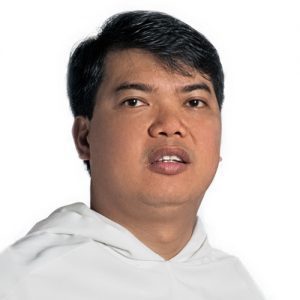Section for Spirituality and Liturgy
All communities are earnestly urged to celebrate daily and in common the entire liturgy of the hours, according to the spirit and letter of the Constitutions (50th Gen. Chapter, Ord. II, 3).
The religious who cannot attend mental prayer with the community can do it at another appropriate time. It is desirable that the celebration of the whole hour of mental prayer be done in common. Let this be the general practice in all our communities.
Let there be a practice of lectio divina instead of meditation for
at least half an hour every week (OAR Life and Mission Project 2014-
2016).
Every religious is encouraged to receive the sacrament of penance at least once a month. Let community penitential celebrations be held regularly. It is desirable that a confessor (from other religious congregations or from the diocese) be made available for this purpose to local communities at least once a month.
Let every religious attend a week of spiritual retreat every year, and, as much as possible, in common (Const. 82). The Prior Provincial shall put special interest in giving the religious the opportunity of having a retreat in common.
The Ordo Domesticus (Life and Mission Project) determines the day and the form of celebrating the monthly recollection (Const. 83). Let the same be done with respect to the chapter of renewal (Const. 88), which can be held within the same day of recollection. Let the cluster renewal be scheduled as a regular fraternal and spiritual exercise. During the said community acts, other related activities may be held, like acts of spiritual uplift, new exercises of prayer (particularly the Augustinian Recollect spiritual exercises), common renewal of vows, etc.
In accordance with no. 89 of our Constitutions and in order that a truly penitent spirit may be expressed, let our communities determine in their Ordo Domesticus (Life and Mission Project) the concrete form of common penance and mortification on special days and times.
In every community, let there be a religious who shall take charge of organizing anything related to the liturgy and the rites.
Every community shall celebrate the exposition of the Blessed Sacrament especially during feast days and retreats or renewal days. It is recommended that in every house a solemn exposition of the Blessed Sacrament be held once a year. This should be done for a duration that gives the religious the opportunity to meditate on the sacrament and to adore more deeply Christ present in the mystery.
Every community shall celebrate the feasts of the Virgin Mary and of Saint Joseph with great solemnity. If necessary, other ways of celebrating may be adapted to the sensibility of the people. Every religious is encouraged to recite daily the Marian rosary (Const. 79). It is recommended that this be done in common, at least, on Saturdays and on the feasts of the Virgin.
Let the religious and the communities cultivate and promote, in the most convenient way, the devotion to our Augustinian saints, particularly Saint Augustine, Saint Ezekiel Moreno, and Saint Nicholas of Tolentine.
Special Prayers
All religious are enjoined to remember frequently the benefactors, living and dead, of the Order in the Prayers of the Faithful in the Mass, in the intercessions of the Morning and Evening Prayers and in other pious exercises.
A common prayer should be said for the religious who are seriously ill, particularly in the houses where they live. The religious shall also offer for them the pious exercises of the community.
Aside from what is required by no. 94 of our Constitutions, let there be special prayers in every house as soon as news of the death of a brother is received. If the religious belongs to the province, it is recommended that he be remembered for some days in the intercessions of the Evening Prayer.
At the death of his father or mother, the religious priest may offer a novena of Masses to Saint Ezekiel or a septenary of Masses to Saint Nicholas. The superiors must offer the same prayers for the parents of the religious of solemn vows who are not priests.
Silence, Absences, Reading in common
The Ordo Domesticus (Life and Mission Project) of each community shall indicate the periods of silence—a jewel in religious life—during which the religious must observe silence in all its aspects (Const. 102).
The good of the community requires that the religious, even those who go out frequently for reasons of their office, inform the prior of their absence so that the prior will know at all times where they are and how they can be located.
The reading in common of the Rule and of the Constitutions is required once a week, and the reading of the directory once a month (Const. 108).
To acquire better knowledge of our laws and for better understanding of the same, the Directory recommends that they be studied during the monthly meetings. The personal study of our laws is recommended as an excellent way of using the free time. The priors are to include information about the fulfillment of this requirement in their annual report.
CBCP ELEVATES ST. EZEKIEL MORENO MEMORIAL AS OBLIGATORY
Invitation: Intervention, Revitalization, and Re-integration Program
SeMoNore Inaugurates Reliquarium
Escalera de La Salud: Paying Homage to Mother Mary, Welcoming the Prior Provincial
30th Sunday in Ordinary Time
29th Sunday in Ordinary Time
28th Sunday in Ordinary Time
27th Sunday in Ordinary Time

Fray Amado Emmanuel A. Bolilia, OAR
Head, Section for Spirituality and Liturgy
